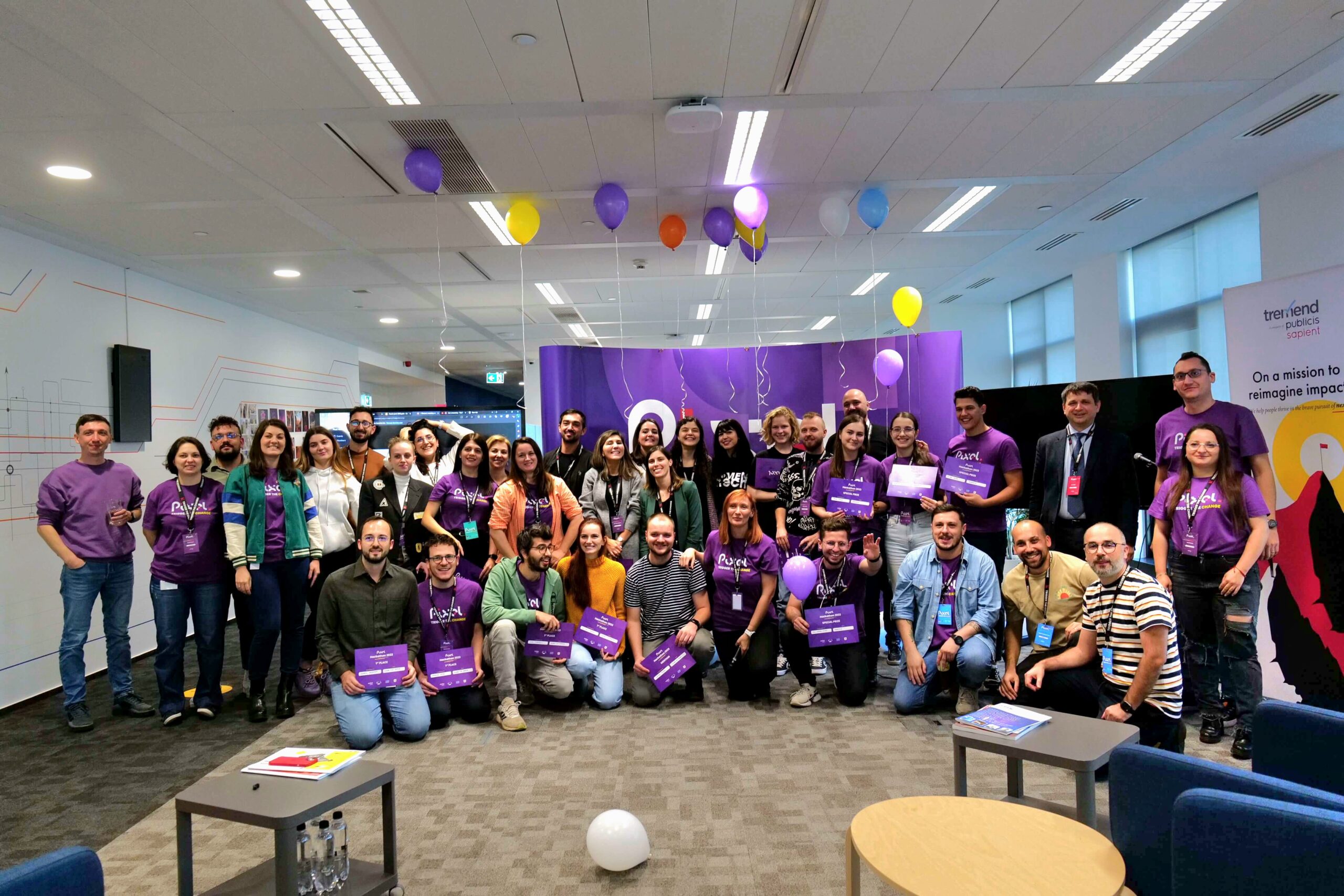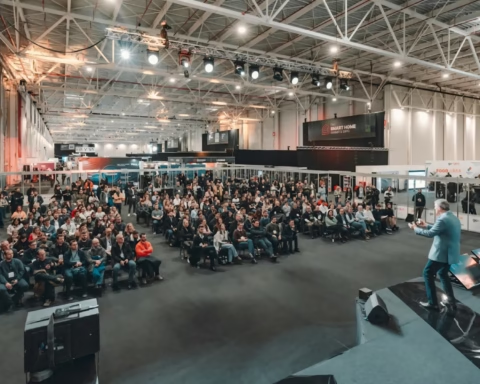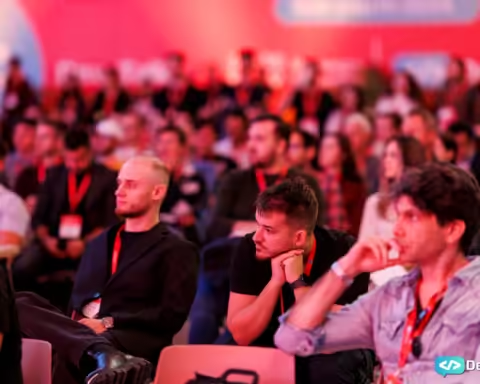This past weekend, over 50 Eastern European experts in product strategy met in a unique hybrid experience – Pixel Hackathon. The event, now in its second edition, brought together professionals with proven expertise in areas like Business Analysis, User Experience, User Interface, Product Management, and Product Strategy, with a focus on collaboration, innovation, and creativity. Grouped into teams of 3 or 4, all participants entered a 24-hour competition to find solutions centered on inclusion and equity, while tackling real-world problems across various industries.
“This year’s theme was Inclusive Design Products Empowered by Gen-AI, and the reason we chose this challenge derives from the current potential of Artificial Intelligence, which provides us with many opportunities to enhance and manage the inclusion services we offer to all users,” stated Ana Ghenovici, Tremend’s Product Management Craft Lead.
On the same note, Vlad Chiratcu, an Associate Creative Director Experience at Tremend, added: “I think it’s a challenging topic, but at the same time now it’s the moment when we have to address issues of inclusion, accessibility, and integration, exploring the potential of AI and Gen-AI to find authentic solutions to real problems that users face.”
This year’s competition was supported by top players in their industries, with whom Tremend, technology hub in the CEE region for Publicis Sapient, established strong and long-lasting connections: DIGIT – European Commission, Cargus and Women in Tech Romania; by proposing real-life challenges that affect society and the communities they deserve or work with, intended to be tackled in the competition.
Reflecting on their initial reactions following the results, the winners mentioned that besides facilitating and accelerating the customer journey with the help of Gen-AI, they aimed to develop and implement a viable solution that can have a positive impact in society. Among their motivations were exploring Artificial Intelligence in the inclusion process, validating authenticity through real-time data analysis and identification, and, last but not least, the opportunity to build and develop revolutionary solutions.
From vision to reality
Pixel Hackathon 2023 represented a veritable laboratory of ideas for the proposed solutions, where creative concepts and prototypes with real development potential quickly emerged.
One of the major challenges was to promote an inclusive, safe, and informative digital age, while empowering citizens to surf the internet confidently. This included solutions for people with impairments, language barriers, digital deficits, and combating misleading information, with participants using diverse approaches, adapting content to different areas of Europe while equally respecting European accessibility standards.
“The most difficult part we encountered was selecting relevant information for participants, considering we have over 300 websites just for public information, to be interested in discovering innovative ideas to reach citizens who don’t visit our sites for various reasons, be it from a technical abilities standpoint or possible physical or health difficulties; we are interested in the possibility of using systems that would help citizens find the information they want more easily, and, last but not least, we would like to see a system that would help us measure the impact of these new solutions that we want to implement.“, stated Florin Bota, Head Of Sector in charge of Europa Web Operations at the European Commission.
The Cargus challenge focused on leveraging Gen-AI technologies to enhance accessibility for underrepresented social categories, including people with physical disabilities, those with intellectual disabilities, total or functional illiteracy, those with language barriers, immigrants and emigrants, as well as people with digital deficits such as the elderly. Various solutions were proposed, from adaptive functions for the visually impaired to simplifying services for UX-reticent users.
“I was impressed by the last pitch, that of the winning team, which presented a concept that we can quickly implement and with great success! What I liked best about the method they proposed is that it is a conversational one, somehow integrated into our existing business processes. We considered something similar, specifically AR functionality to assist the user in determining the size of the packages they wish to ship, however we didn’t integrate the utility into a conversational model. The process proposed by the contestants seems to add value, as it is essentially a conversation between the user and the Cargus app.“, explained Felix Craciunescu, Chief Information Officer at Cargus.
HATs off to the Chase the Status team for winning first place in Pixel Hackathon 2023. A special shout-out to Ana Maria Oancea, Cosmin Cajvanean, Mihai Profiroiu and Ferencs Veres, as their prototype was a smashing success. Also, special congratulations to Maria Timbur, Catalina Ianus, Radu-Stefan Minea and Elisei Dura, for winning the special award presented by the European Commission. Their hEUro solution showcased a highly intricate functional decomposition mindmap and user journey.
This year’s competition was not only a showcase of Artificial Intelligence and Generative AI, but also a promise of commitment to a more inclusive and accessible digital society. The event highlighted the significance of interdisciplinary collaboration in addressing the complex concerns of today’s digital environment. With a profound and visible impact, Pixel Hackathon paves the way for future innovation, proving that through a combination of creativity and technology, we can build a better digital world for everyone.
For more information, visit the official website of the Pixel hackathon.





